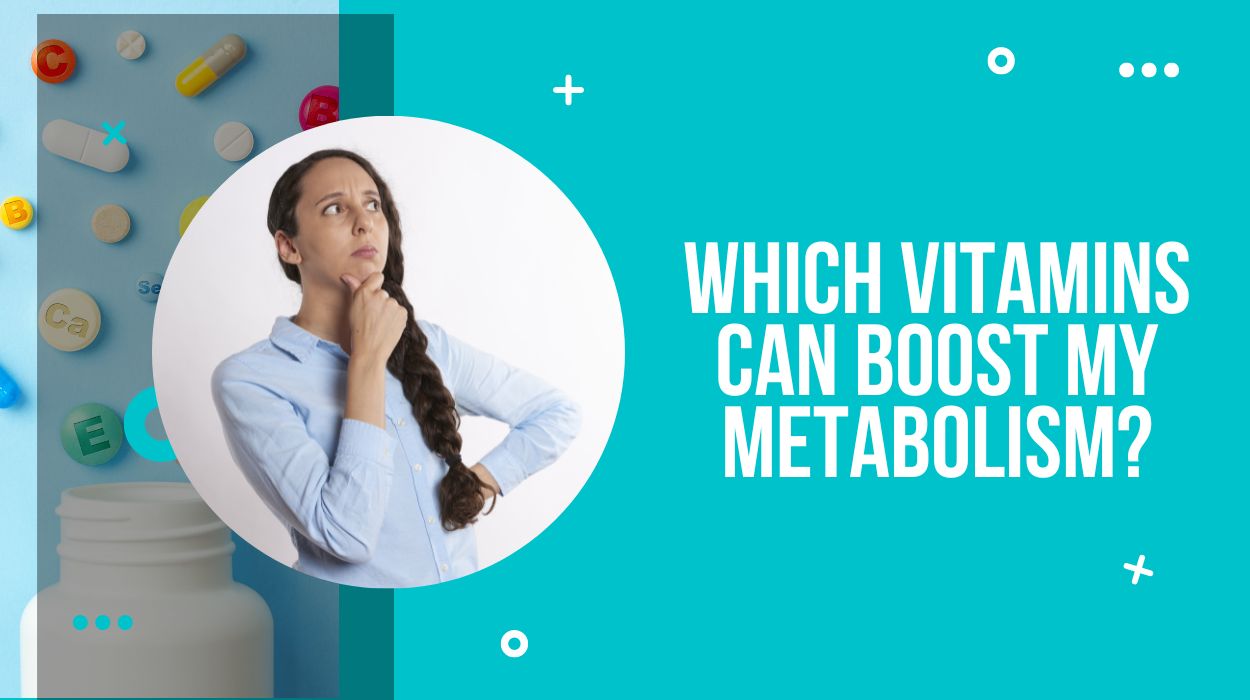Do you know that there are vitamins which help in metabolism & hence weight loss? But first things first, do you know what exactly metabolism is & how it helps in making your body healthy?
Let’s discuss these questions one by one.
Metabolism is the conversion process of your food into energy, which further supports the growth & repair of cells. Faster metabolism processes mean burning calories quickly, converting them to power, and store less as fats, thus making them less likely to gain weight.
As your age increases, your metabolism rate decreases. Several vitamins and minerals help in working of metabolism process efficiently.
Now, let’s discuss what specific vitamins are required by the body to boost metabolism.
1. Vitamin B
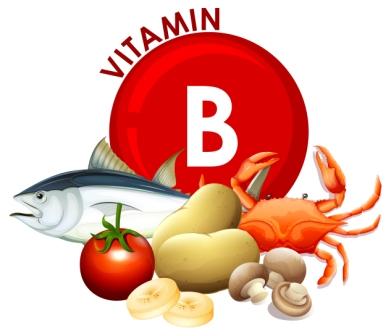
B-vitamins consist of 12 water-soluble vitamins. These vitamins get dissolved in water & absorbed into the body for immediate use. But these water-soluble vitamins do not get stored in the body & get excreted through urine. That’s why B-vitamins need replenishment regularly.
Vitamin B1 (Chemical Name: Thiamine)
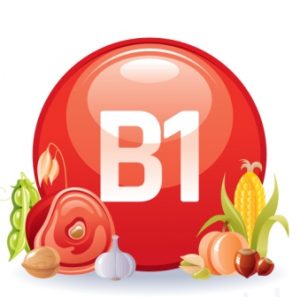
Vitamin B1 helps in the metabolism process of proteins, fats & carbohydrates.
Function
The main function of vitamin B1 is to help in the metabolism of carbohydrates into energy, which supports the nervous system, muscle contraction & nerve signals transmission.
Sources of Vitamin B1
Beans, lentils, green peas, yoghurt, enriched cereals & rice, and fish & pork are sources of vitamin B1.
Symptoms of Deficiency
Fatigue, confusion, swelling, poor memory, appetite loss, and sleep disturbances are some of the early symptoms of vitamin B1.
Daily Requirement
An average human body requires 1.2 milligrams of vitamin B1, whereas pregnant & breastfeeding mothers need 1.4 milligrams.
Now, let’s move to the second type of vitamin-B, Vitamin B2.
Vitamin B2 (Chemical Name: Riboflavin)
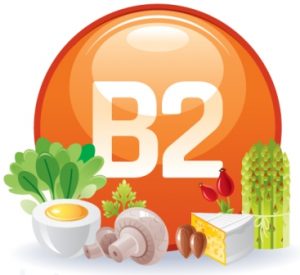
Vitamin B2 helps in proper skin development, brain function, breakdown of steroid functions & fats. This way, riboflavin contributes to the fat metabolism process of converting food into energy.
Function
Derivatives of riboflavin help in essential cellular functions, like conversion of food into ATP (the energy currency of human cells), stress responses, etc.
Sources of Vitamin B2
Cheese, yoghurt, milk, meat, eggs, bananas, green beans, and cottage cheese are sources of vitamin B2.
Symptoms of Deficiency
Deficiency of vitamin B2 causes sore throat, dry, scaly skin, lips inflammation, and fissures in the mouth.
Daily Requirements
An average human body requires 1.3 milligrams of riboflavin (vitamin B2), whereas breastfeeding or pregnant women need 1.6 milligrams of the same.
Now, let’s move to the third type of vitamin-B, Vitamin B3.
Vitamin B3 (Chemical Name: Niacin, Niacinamide)
Vitamin B3 helps in keeping the skin, nervous system & digestive system function properly.
Function
Niacin plays an important role in the metabolism process of fats and proteins and converting carbohydrates into glucose.
Sources of Vitamin B3
Sources include carrots, milk, eggs, tomatoes, lentils, beef, chicken, nuts, broccoli, leafy vegetables, tuna, and salmon.
Symptoms of Deficiency
Deficiency of vitamin B3 causes health issues, pellagra, which results in diarrhoea, skin changes, dementia & even death.
Daily Requirement
An average human being requires 16 milligrams or equivalent of vitamin B3. The daily necessity of pregnant or breastfeeding mothers is 18 milligrams or equivalent.
Now, let’s move to the fourth type of vitamin-B, Vitamin B5.
Vitamin B5 (Pantothenic Acid)

Vitamin B5 plays a crucial role in the functioning of the brain & nervous system.
Function
Pantothenic acid manufacture coenzyme, which is essential for metabolism process of fatty acids, also in general, convert carbohydrates into food, help body use proteins and fat.
Sources of Vitamin B5
Whole grains, broccoli, yoghurt, meat & avocado are some examples of sources of vitamin B5.
Symptoms of Deficiency
Reduced vitamin B5 in the body causes fatigue, muscle numbness & pain, burning sensation in various parts of the body (paraesthesia) & irritability.
Daily Requirement
The daily requirements of vitamin B5 for the average body is 5 milligrams and 7 milligrams for pregnant women.
Now, let’s move to the fifth type of vitamin-B, Vitamin B6.
Vitamin B6 (Chemical Name: Pyridoxine, Pyridoxamine, Pyridoxal)

Vitamin B6 is essential for brain development, immune function, and the creation of new red blood cells (RBC).
Function
Pyridoxine helps in the metabolism process of proteins. A combination of niacin (vitamin B3), vitamin B6 and iron supports the body in producing amino acids L- carnitine, which helps burn fat.
Sources of Vitamin B6
Peanuts, soya beans, chickpeas, bananas, nuts, oats, and beef liver are some of the examples of vitamin B1.
Symptoms of Deficiency
Early symptoms of deficiency of vitamin B6 are mouth sores, confusion, impaired alertness & depression.
Daily Requirement
Daily vitamin B6 in the average body is 1.7 milligrams and 2 milligrams for pregnant & breastfeeding mothers.
Now, let’s move to the sixth type of vitamin-B, Vitamin B7.
Vitamin B7 (Chemical Name: Biotin)
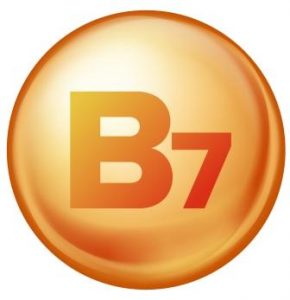
Biotin is required for the body to metabolize amino acids (building blocks of proteins) and carbohydrates. It contributes to keratin production, which is a structural protein in nails, hair & skin.
Function
Biotin has coenzyme, which supports the synthesis of glucose, protein & fat metabolism.
Sources of Vitamin B7
Egg yolk, meat, seeds, cheese, spinach, broccoli & fish are good sources of vitamin B7.
Symptoms of Deficiency
Early symptoms of vitamin B7 deficiency are fatigue, inflammation of intestines, common skin irritation (dermatitis) and muscle weakness.
Daily Requirement
The daily intake of biotin for an average human body is 30 micrograms and for pregnant & breastfeeding women is 35 micrograms.
Now, let’s move to the seventh type of vitamin-B, Vitamin B9.
Vitamin B9 (Chemical Name: Folate, Folic Acid)
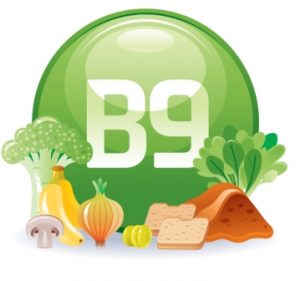
Folate is one of the crucial vitamins of 8 B-vitamins. It helps the body to use proteins & fats and produce energy from carbohydrates.
Function
Folate helps in one of the carbon reduction reactions, which helps produce amino acids(building blocks of proteins). Doctors recommend folic acid tablets before & after pregnancy. Vitamin B9 helps in reducing several congenital abnormalities of the unborn baby.
Sources of Vitamin B9
Sunflower seeds, legumes, leafy vegetables, peas, beans, liver, and seafood are some common examples of vitamin B9.
Symptoms of Deficiency
Folic acid can affect the foetus’s nervous system—the reason why folic acids are essential to take in during pregnancy.
Daily Requirement
For an average human body, the daily requirement of folic acid is 400 milligrams or equivalent. Pregnant women require 600 milligrams of folate daily.
Now, let’s move to the eighth type of vitamin-B, Vitamin B12.
Vitamin B12 (Chemical Name: Cobalamin)

Vitamin B12 requires folate (vitamin B9) and vitamin B6 to function correctly. It is present only in animal products. That’s the reason vegans or vegetarians may found difficulty in having enough vitamin B12.
Function
Vitamin B12 helps in creating new red blood cells (RBC) & brain functioning. It also helps in maintaining & creating blood & skin cells.
Sources of Vitamin B12
Milk & other dairy products, fish, shellfish, poultry, meat, fortified cereals, meat substitutes, fortified soy products, fortified nutritional yeast are good sources of vitamin B12.
Fortified foods have nutrients that are added to them, which don’t naturally occur in the food. For example, calcium may be added to fruit juices, or milk is added to vitamin D, etc.
Symptoms of Deficiency
Low levels of vitamin B12 may lead to neurological problems and some types of anaemia.
Daily Requirement
The daily requirement of vitamin B12 is 2.4 milligrams for an average person and 2.8 milligrams for pregnant mothers.
Note: You will require vitamin-B supplements. Make sure to consult a doctor while going for the same. There can be various reasons for taking B vitamins supplements, even if we can get them from available food.
- If you are vegan or vegetarian, there is a chance of not getting vitamin B enough as vitamin B is primarily found in animal-based products. Being vegan, you do not have dairy products, and being vegetarian, you cannot have meat or animal meats. So, there can be a high possibility of deficiency of vitamin B
- If you are pregnant, you are advised to take more vitamin-B supplements as these vitamins are essential for foetus growth. Deficiency of the same can cause congenital disabilities (birth defects), brain, or spinal cord abnormalities in the baby.
- If you are 65 or more, doctors recommend you take more vitamins to reduce ageing effects on the brain cells.
- If you are having any health issues, diabetics, kidney problems, arthritis, cancer, or Alzheimer’s, doctors recommend you have B vitamin supplements in your daily routine.
2. Vitamin D (Chemical Name: Ergocalciferol)

Vitamin D is essential for a healthy immune system. It helps burn more calories after eating by blocking the production of new fat cells in the body. Vitamin D is essential for the body, as it helps in utilizing calcium from your food diet. Calcium, in turn, helps in boosting metabolism.
The primary source of vitamin D production in the body is by absorbing UV rays from the sun.
What do research studies say about vitamin D?
Studies suggested that persons with less fat (high rate of metabolism) have more vitamin D than those with more fat. 2011 study shows that the overweight people (less metabolism rate) taking vitamin-D & calcium supplements lose more stomach fat than those not taking supplements.
But taking only vitamin-D supplements will not help weight loss; you need to include healthy lifestyle changes.
Absorbing Vitamin D Naturally
You can absorb vitamin D naturally by spending some time in the sunlight (sun-basking). Make sure to consider the below points while your process of sun-basking.
- Best Time for Sun-Basking
At mid-day, the body can produce maximum vitamin D as sun rays are direct & in the total amount. But due to sunburns by the sun’s scorching heat, most people avoid this time.
So, it is better to spend time in the sun during sunrise & sunset time, as sunrays’ heat is less comparatively.
- Clothes Apt while Sun-Basking
Cotton clothes will be most comfortable while sun-basking, like sun rays, quickly pass through cotton clothes to the body. You can sun-bask your whole body.
- Duration of Sun-Basking
The duration of sun-basking is a maximum of 15 minutes. Do avoid long hours. Unless you are sun-bathing, where you want to relax and obtain a tan, do not sun-bask for more than 15 minutes
Reason for Shortage of Production of Vitamin D
Skin produces vitamin D in the presence of UV rays of sunlight. But nowadays, people spend most of their time indoors, or if you live in a climate where the sun does not always shine, you do not get enough sunlight.
Sources of Vitamin-D
Almonds, seeds, fatty fish (salmon, tuna, sardines), cod liver oil, leafy vegetables, beef liver, fortified dairy & fortified plant-based milk are the sources of vitamin D.
Fortified foods have extra nutrients added, especially those nutrients that are generally not present in them. Milk fortified with vitamin D is one of the examples of fortified foods.
Daily Requirements
A human body requires 600 IU (international unit) till 70 years of age. After 70 years, humans need 800 IU as a daily requirement. IU is the amount of vitamin-D production to the full-body sun exposure ratio.
Only taking vitamin supplements will not suffice your vitamin requirements; you have to make healthy lifestyle changes.
Essential Points to be Noted
You can improve your metabolism by including activities in your daily life, such as-
- Taking stairs than taking an elevator
- Walking while talking on a phone
- Park your vehicle far from the entrance to push yourself for walking
- Go for weight training twice or thrice a week
- Yoga & meditation
Foods to Avoid
- Alcohol
- Refined grains
- Soyabean oil
- Processed foods
- Granola
Final Words
In the end, it’s all coming down to achieving a healthy lifestyle. If you have a disciplined life, you don’t need to worry about vitamin intake or weight issues. You need to include the right foods with vitamins in your diet. Else, popping a vitamin supplement can help, but remember, these are not permanent solutions.
I hope you find the article helpful. I would love to read your comments in the section below.

